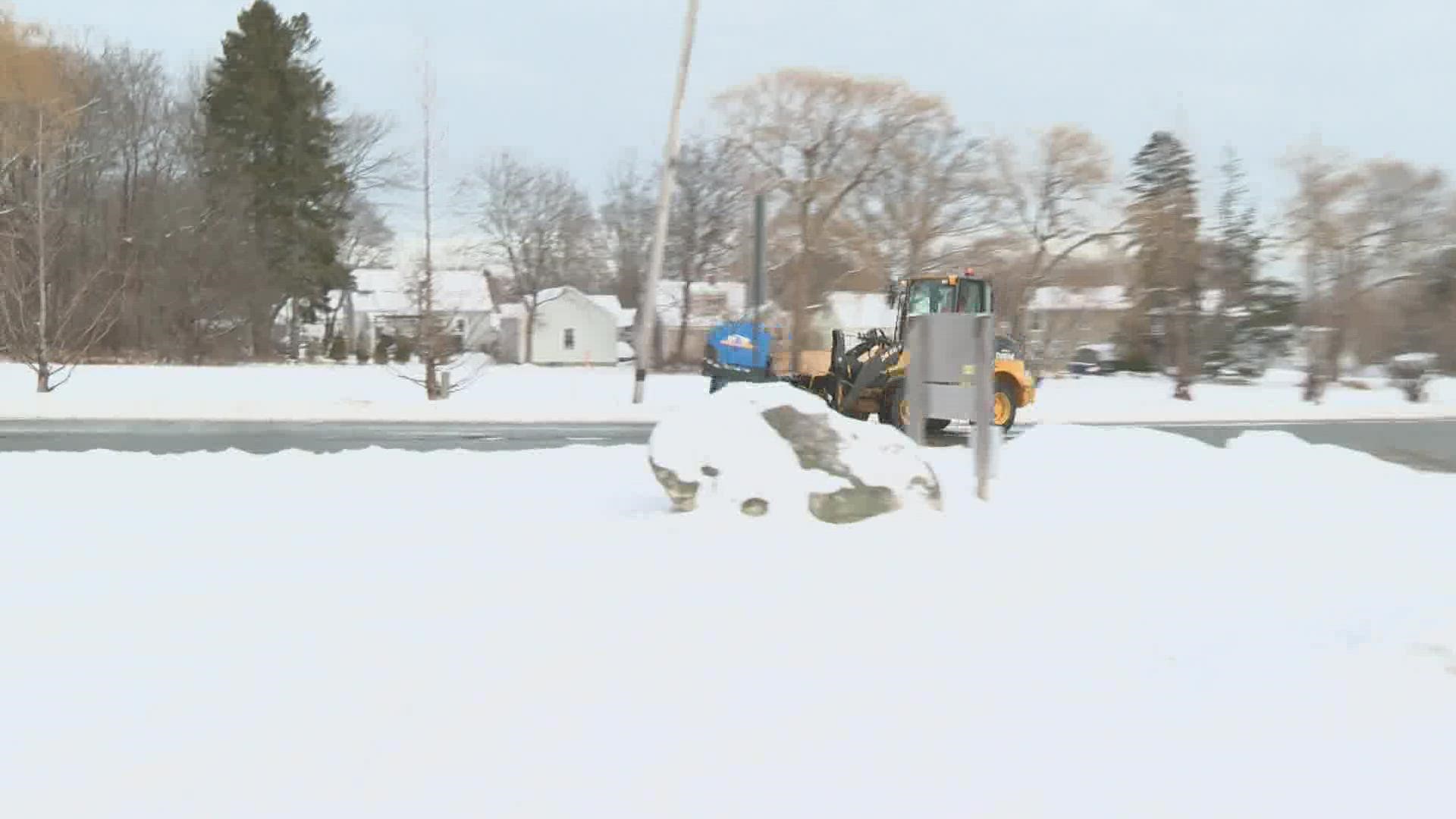SOUTH PORTLAND, Maine — The bustling intersections at the Maine Mall in South Portland sit next to a freshwater ecosystem that is battling one of the highest concentrations of road salt runoff in the state of Maine, according to new research from the University of Maine.
Workers with the Long Creek Watershed said they have studied Long Creek's toxicity for the last decade, and if Mainers don't lessen salt usage during winter months, the rest of the state's urban areas could face the same predicament.
"We now have 12 years of data pulled from this stream. Everyone knew it was an issue 10 to 12 years ago, but we didn't know the magnitude of this issue until recently," Peter Carney, executive director of the Long Creek Watershed Management District, said. "Long Creek has some of the highest chloride levels in the state."
Carney samples Long Creek in two ways, one by using a PVC pipe that automatically sends electric signals through the water every 30 minutes, and second by simple random sampling by gathering water from the creek and analyzing its salinity.
Carney said Long Creek has hired a consultant to act as a third party to study the water's salt contents and find out ways to reduce the harm to the ecosystem.
"We know where we stand on the impairment of the creek. ... Working on sustainable winter management, lowering the amount of salt that is being used while maintaining a certain level of service," Carney said.
Maine is not going to get rid of road salt any time soon, according to Carney, but the amount used is far higher than standard.
"Much more salt is being put down in the ground than is needed to maintain a very high level of service. ... The effect that salt has on surface waters is just becoming known now," Carney said.
Jonathan Rubin, one of the lead researchers with the UMaine study, said road salt is a sensitive issue with a big dilemma: reducing the amount of salt during winter can lead to more crashes.
"I think we can use less salt and less money if we do it a bit smarter, and that requires you and me to change our behavior a little bit," Rubin said.
Rubin said using salt in staggered areas could help, and individual choices people make about driving after snow storms can ease the amount of salt being used in Maine.
"We're talking about 500,000 tons of salt used on our roads each year ... 780 pounds per person," Rubin said.
Other chemicals and improved snow tires for cars are just some of the solutions mentioned in the UMaine research as ways to reduce the salt that runs down into watersheds like Long Creek.
"What's happening in Long Creek, you could see in other areas of Maine," Carney said.
Carney said legislation could be introduced next year that would ease the liability on agencies distributing salt, allowing them to reduce the volume of salt used on roads without worrying about facing lawsuits from crashes.

